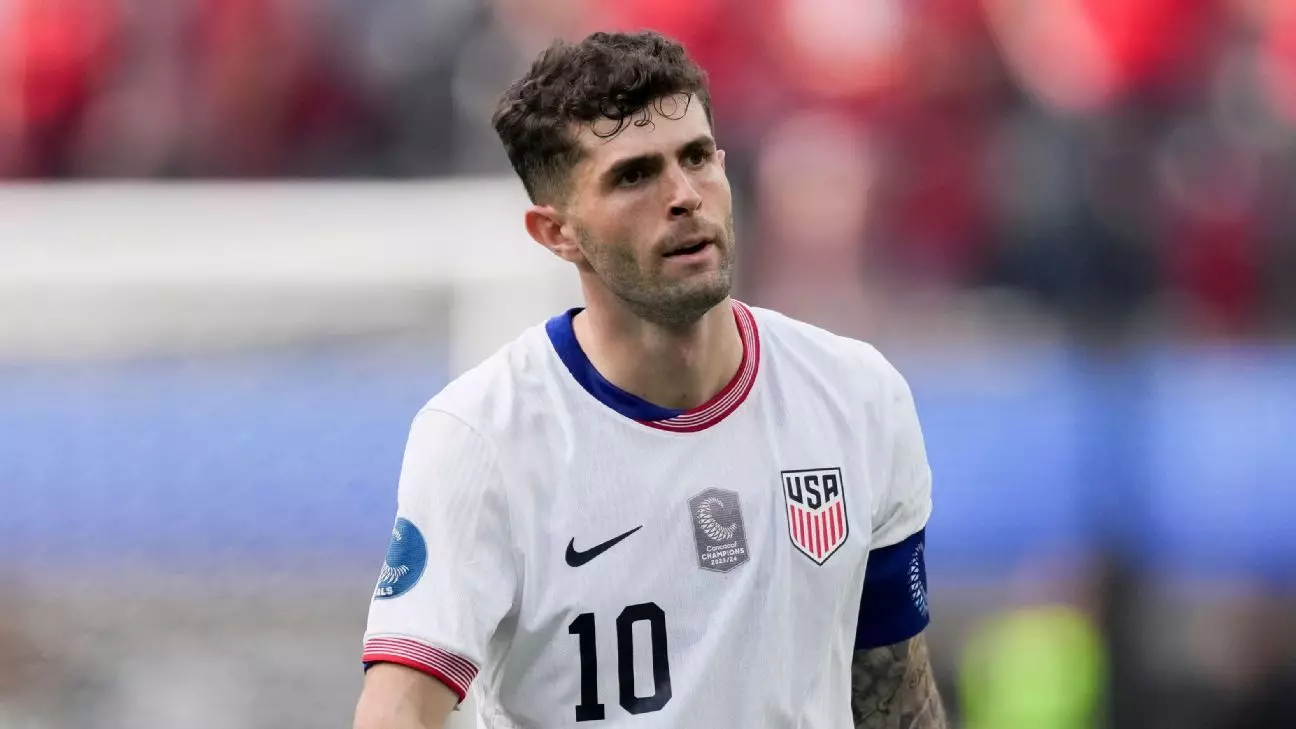In the ever-evolving world of soccer, the clash between tradition and modernity often takes center stage, especially when it involves icons like Christian Pulisic and Landon Donovan. The recent tensions surrounding Pulisic’s decision to skip the upcoming Gold Cup have ignited debates that transcend mere personal choices and delve into the very essence of what it means to represent one’s country on the global stage. Donovan, a stalwart of American soccer, articulated his disapproval while commentating on the UEFA Nations League final. This moment marked a poignant intersection of two distinct philosophies in sports: the unwavering commitment to national duty versus the necessity of self-care for athletes.
Donovan’s Call for Commitment
Landon Donovan’s passionate remarks during the Fox Sports broadcast indicate a belief that every player should be ready and willing to don the national jersey at every opportunity. He drew comparisons to Cristiano Ronaldo, emphasizing that even at 40 years old, the legendary Portuguese forward is willing to push through exhaustion and play through pain for his country. Donovan’s declaration that a professional soccer player’s identity is intertwined with their national representation raises an important question: should personal well-being take a backseat to patriotic duty?
In critiquing players like Pulisic, who opt for rest over participation, Donovan expressed a frustration that resonates with many fans who hold high expectations for their athletes. His insistence that players should prioritize national commitments over personal fatigue reflects a traditional mindset that valourizes the “grind” of athletic competition.
A New Perspective: The Pulisic Family Response
However, Mark Pulisic’s retort to Donovan’s critique introduces a refreshing perspective. By using the power of AI to draw parallels with Donovan’s own sabbatical in 2012-2013—a break stemming from mental and physical exhaustion—he underscores the complexities athletes face today, particularly in a high-pressure sport like soccer. The mental health dialogue has shifted significantly in sports, and Mark Pulisic’s acknowledgment of this nuance reflects a growing recognition that self-care can be equally as patriotic as any match played on the pitch.
Mark’s decision to share an AI-generated analysis of Donovan’s sabbatical on social media not only challenges the narrative that athletes should always prioritize playing but also promotes a conversation about mental health—an increasingly vital aspect of athletic training and career sustainability. This act of using a modern tool like ChatGPT to bolster his argument opens a pathway for understanding the mental and emotional hurdles athletes often navigate, particularly those in the public eye like his son.
The Weight of Expectations
It’s vital to consider the pressures placed on professional athletes today, especially with the U.S. Men’s National Team gearing up for a significant World Cup responsibility set to take place on home soil in 2026. Critics like former soccer star Alexi Lalas echo Donovan’s concerns, emphasizing the need for rosters to develop chemistry. Still, what about the individual welfare of players who may already be feeling the intense weight of expectations? Is it time we shift the narrative to allow space for athletes to prioritize their long-term health without being labeled as “unpatriotic”?
It’s a delicate balance: honoring one’s duty to the nation while also taking necessary breaks to prevent burnout. The United States is at a critical juncture in its soccer development, one that asks whether the best path forward respects both the tradition of commitment highlighted by Donovan and the contemporary understanding of athlete wellness espoused by the Pulisics.
Changing the Narrative in Sports
This incident has sparked necessary conversations about how athletes are perceived and treated within the realm of national pride and personal health. Rather than merely dismissing Pulisic’s choices as weakness, perhaps it’s time for the soccer community to embrace a more nuanced understanding of what it means to represent one’s country. Just as Donovan had his moment of vulnerability—and was, in essence, preparing for a more significant challenge later—today’s athletes should be afforded that same grace.
Ultimately, both perspectives carry weight. Pulisic’s conscious choice to step back offers a lesson in prioritizing sustainability in sport, while Donovan’s call for commitment serves as a reminder of the honor that comes with wearing a national jersey. In this clash of ideals, we must seek a path that cultivates both individual well-being and collective pride—a goal worth striving for in the world of sports.


Leave a Reply